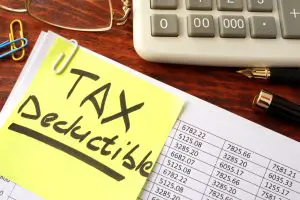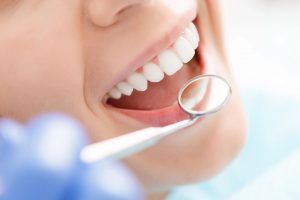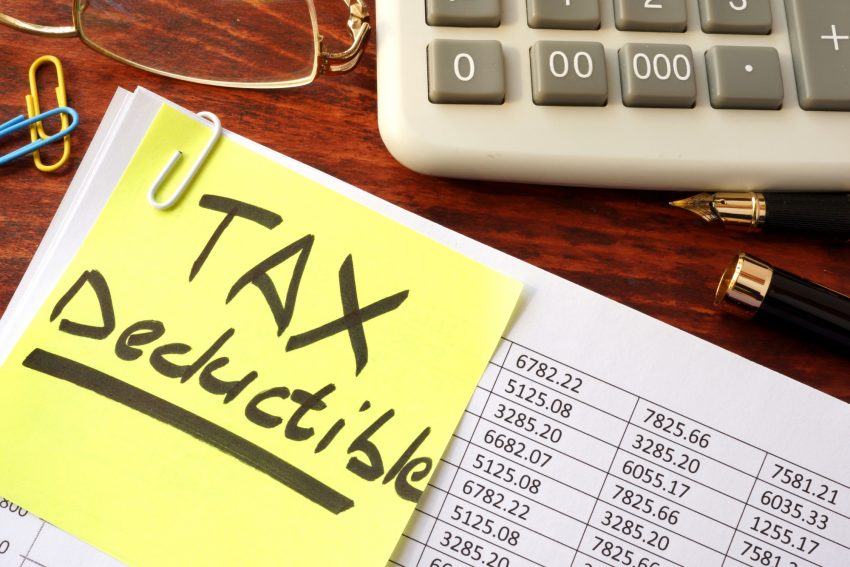As a dentist, you know that keeping your finances in order is important. But did you know that there are tax write-offs for Dentist available to help you reduce your taxable income? If you’ve made equipment purchases, bought dental office supplies, paid utilities, etc., it’s all tax-deductible!
In this article, we’ll highlight some of the best tax write-offs for dental professionals. You’ll definitely want to keep them in mind as you file your taxes this year!
With that in mind, keep reading to learn about tax-deductible expenses for dentists.

Contents
What Is a Tax Write-Off?
Before delving into all of the wonderful tax write-offs that are available to you, it’s important to understand what a tax write-off is. A tax write-off is an eligible expense that can be deducted from your taxable income. This reduces the amount of taxes you owe and can increase your refund.
There are a few different types of tax write-offs, including business expenses, charitable donations, and medical expenses. To qualify for a write-off, the expense must be considered necessary and directly related to your business or profession.
Business expenses include things like office supplies, travel costs, and marketing expenses. Charitable donations are deducted if they’re made to a qualified organization.
Also, medical expenses qualify for deductions if they exceed a certain percentage of your adjusted gross income.
If you think you might have some eligible tax write-offs, get clarity from an experienced tax source. Doing so will help you to learn about tax loopholes and other tax-saving strategies that’ll hopefully reduce your tax bill.
Tax Write-Off vs. Tax Credit: What’s The Difference?
There are a lot of misconceptions about taxes out there. And one of the biggest is thinking that a tax write-off and a tax credit are the same things.
They’re not. In fact, they’re quite different. Here’s a quick rundown on the differences between the two:
A tax write-off is an expense that’s deducted from your taxable income. This means that if you have a taxable income of $50,000, and you have $5,000 in write-offs, your taxable income would then be $45,000.
A tax credit, on the other hand, is a dollar-for-dollar reduction in your tax liability. So if you owe $5,000 in taxes, and you have a $1,000 tax credit, your tax liability would then be $4,000.
The bottom line is that a tax write-off reduces your taxable income, while a tax credit reduces your actual tax liability. And that can make a big difference come tax time.

Tax Deductible Expenses For Dentists: The Best Tax Write-Offs
If you’re a dentist, there are a few key tax write-offs that you can take advantage of. Here are the most common ones:
Business Vehicle
If you use your personal vehicle for business purposes, you can write off a portion of the costs associated with it. This includes things like gas, maintenance, and insurance. When it comes to deducting dental expenses, the write-offs go well beyond the practice itself.
Also, a business vehicle doesn’t have to be a large truck or van. A small, compact car qualifies for this dentist tax deduction as well.
Equipment Purchases
Any equipment that you purchase for your dental practice qualifies for a tax write-off as a business expense. This includes things like dental chairs, x-ray machines, and other necessary tools of the trade.
In most cases, tax-deductible expenses for dentists are vast because of all of the equipment purchases that the dental office has to make. You should be able to drastically reduce your tax bill by writing off equipment.
Supplies
All of the supplies that you use in your dental practice can be written off as well. This includes things like gloves, dental floss, and mouthwash.
If you have a supply closet full of items that you use on a regular basis, you can write off the entire cost of those supplies. This is a great way to save money during tax season!
Employee Wages
If you have employees working in your dental practice, you can write off their wages as a business expense. This includes things like salaries, bonuses, and commissions.
You can also get a tax break on the cost of employee benefits, such as health insurance and 401(k) contributions. If you have a large staff, you can significantly minimize your tax liability by writing off wages.
Utilities
The utilities that you pay for your dental office are tax-deductible. This consists of things like electricity, water, and trash service.
In some cases, you may even be able to write off the cost of internet and phone service. These deductions can add up quickly, so be sure to take advantage of them!
Remember, dental expenses aren’t just the tangible items that you use, but everything that goes into operating your business.
Advertising
Any advertising costs that you incur for your dental practice are tax-deductible. This includes things like print ads, online ads, and even television commercials.
If you’re spending money to promote your business, you can write off those expenses come tax time. You’re probably spending a “pretty penny” on advertising costs if you’re in the process of drawing in patients to a new practice.
This is one of the tax-deductible expenses for dentists that lots of dental professionals forget to write off.
Dental Office Upgrades
If you make any upgrades or improvements to your dental office, those costs are tax-deductible. This deduction consists of things like painting, remodeling, and new furniture.
You can write off the cost of these upgrades over time. In most cases, you’ll be able to deduct a portion of the cost each year.
Retirement Plans
Any retirement plans that you have for yourself and your employees are tax-deductible. Things like 401(k)s and pensions are eligible.
You can deduct the cost of these retirement plans from your taxes. This is a great way to save for the future while also reducing your taxable income.
As you can see, there are plenty of tax loopholes and lots of dental expenses that you can write off during tax season. Be sure to take advantage of all the deductions that you’re entitled to! This will help you minimize your tax liability and keep more money in your pocket.
Commonly Overlooked Dentist Tax Deductions
If you thought the list above was incredible, you’re in for a treat. There are a few other tax deductions that lots of dental professionals overlook.
Yes, there are even more ways to save on your tax bill. Here are some of the most commonly overlooked tax write-offs:
Job Hunting Expenses
If you’re looking for a new job, you can deduct any job search-related expenses, including resume writing services, travel costs, and placement agency fees.
Are you relocating to a new practice? Did you hire someone to fix up your resume? No matter what, you can write the expenses off.
It’s important to note that dentist tax deduction doesn’t just apply to dentists who own a practice. If you’re a dentist who works as an independent contractor, this deduction applies to you as well.
State Sales Tax
Do you live in a state with a sales tax? If so, you can deduct the amount you paid in state sales tax on your federal income tax return.
That’s right, even some purchases unrelated to your practice are tax-deductible. Pretty cool, huh?
Out-of-Pocket Charitable Donations
If you make any charitable donations out of your own pocket (rather than through a payroll deduction), you can deduct them from your taxes. This includes both monetary donations and donations of goods.
Just be sure to get a receipt from the organization and hang on to it. The IRS is pretty strict about documentation, so it’s better to be safe than sorry.
Moving Expenses for New Job
Did you have to move to land a job at a dental office? If so, you may meet certain criteria. Therefore, you can deduct your moving expenses from your taxes.
To qualify, your new job must be at least 50 miles away from your old home. You also must move within a certain time frame (usually within one year of starting the new job).
If you’re self-employed, the distance requirement goes up to 75 miles. And if you have any questions, be sure to ask a tax professional. They can help guide you through the process.
Child Care Credit
If you’re a parent, you know that child care is expensive. Luckily, you can get a tax credit to help offset the cost.
To be eligible, you must have paid for child care so that you could work or look for work. The credit is worth up to 35% of your eligible expenses, depending on your income.
And there’s no limit to the number of children you can claim. So if you have two or more kids in daycare, you can get a credit for each of them.
Lifetime Learning Credit
The Lifetime Learning Credit is similar to the Child Care Credit, but it’s available to anyone who’s taking classes (rather than just parents).
You can get up to $2,000 per year for eligible expenses, making it a great way to offset the cost of continuing education.
Again, there’s no limit to the number of years you can claim the Lifetime Learning Credit. So if you’re taking classes each year, you can get a credit for each year that you’re enrolled.
Child Summer Care Expenses
Summer camp might not seem like a tax deduction. But if you’re sending your kids to camp so that you can work, it actually is.
And like the Child Care Credit, there’s no end to the number of children you can claim. So, if you have multiple kids in summer camp, you can deduct the expenses for all of them.
Just keep in mind that the camp has to meet certain criteria. It can’t be an overnight camp, and it must provide care for children under 13 years old.
If you’re not sure whether or not your camp qualifies, read up on it from a reliable tax source. And of course, you can always ask a tax professional.
Should I Hire a Professional to Do Taxes for My Dental Business?
You’ve just started your dental business. You’re seeing patients and things are going well. But there’s one thing you’re not sure about: taxes.
Should you hire a tax professional to do your taxes for you? The answer is… it depends. If you have a simple tax situation, you may be able to do your taxes yourself. But if your business is more complex, it’s probably worth hiring a tax professional.
Below are a few things to keep in mind when making your decision:
1. The Complexity of Your Business
If you have a lot of employees and customers, your taxes will be more complex than someone who is self-employed with no employees. A tax professional can help make sure you’re taking advantage of all the deductions and credits you’re entitled to. You never want to miss out on deductions or make a mistake.
2. The Amount of Time You Have
Do you have the time to do your taxes yourself? If you’re busy seeing patients, it might be worth hiring a tax professional to take care of your taxes for you. Sometimes hiring a tax expert is for the purpose of convenience.
3. Your Comfort Level With Taxes
Are you comfortable doing your own taxes? If not, it’s probably worth hiring a tax professional. A good tax professional will make sure you get the maximum refund (or owe the minimum amount) possible.
4. The Cost of Hiring a Tax Professional
Hiring a tax professional doesn’t have to be expensive. There are many affordable options available, so be sure to shop around. Not to mention, the benefits of hiring a tax professional usually outweigh the cost.
5. Get Someone’s Opinion
If you’re not sure whether or not to hire a tax professional, get a second opinion. Ask a friend or family member who is good with numbers and has experience doing taxes. They may be able to give you some advice.
Tax Loopholes: Maximize Your Money During Tax Season
Thankfully, there are tons of tax-saving strategies that you can implement during tax season. As you can see, running a dental office is expensive! You have to pay wages, utilities, advertising costs, and so on. Therefore, the more you can save, the better!
We hope this article helps to ease some of your concerns about paying a large tax bill. If you take advantage of the deductions on this list, you should get a ton of financial relief come tax time.
Also, if you’re new to business taxes and want to learn more, check out more of the articles on our website. Our content offers tons of help and knowledge to business professionals who desire to save money and boost their finances! Visit our site any time you need expert advice!
Learn More
18 Best Tax Deductions for Lawyers in 2021-2022 (Ultimate Guide)
18 Tax Deductions for Photographers in 2021-2022 (Ultimate Guide)
19 Best Tax Deductions for Landscapers and Landscaping Business in 2021-2022
18 Tax Deductions for Painters in 2021-2022 (Ultimate Guide)
18 Tax Deductions for Plumbers in 2021-2022 (Ultimate Guide)






1 thought on “Best Tax Write Offs for Dentists in 2021-2022”